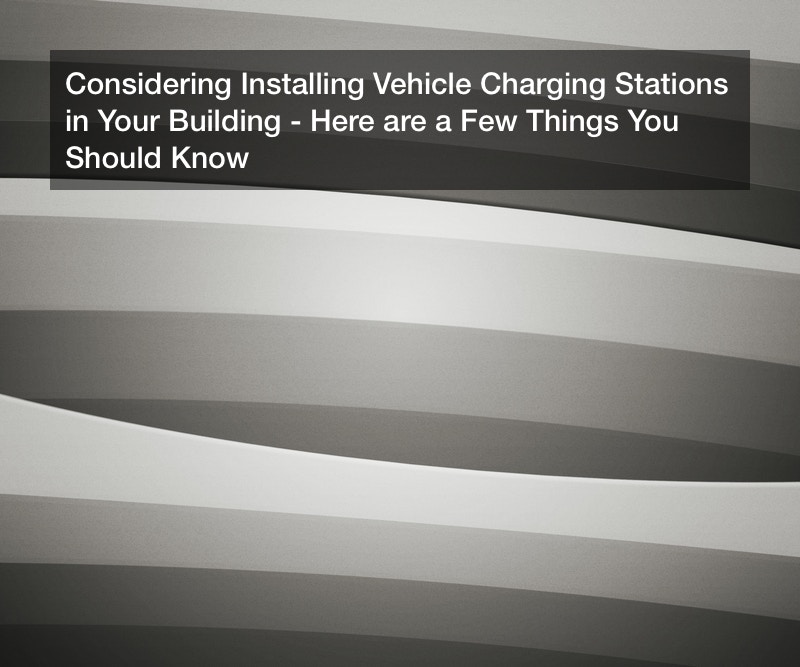Considering Installing Vehicle Charging Stations in Your Building? Here are a Few Things You Should Know

Electric vehicles are gaining more and more popularity. With everyone so keen on going green, it’s your responsibility as the property manager to install vehicle charging stations in your building.
There are many considerations you should make before installing an electric car charging station. Here are just a few of them.
1. Take a Look at Your Building’s Electrical Infrastructure
Before installing an electric carport in your building, it’s critical to have a qualified technician review your electrical infrastructure. Your garage may already be served with fitting electrical fixtures and outlets, making the process easier for you. In the same vein, your garage may lack the kind of infrastructure car charging requires.
Only an expert can tell you if your electrical system meets the set standards. An electric vehicle is a large appliance. You should make sure your building has enough power to handle it.
You may have to install a higher capacity circuit in your home. If you try charging your car at an equal or higher rate to your wiring capacity, you will trip your circuit. Remember, charging your vehicle at slower speeds may be the most convenient in the long run as it is more efficient.
2. Consider How You Use Your Car
If you’re thinking of installing an EV charging station in your home, it’s essential to consider what type of vehicle you have and how you use it. This will make it easier to choose the best EV charging solution for your needs.
If you only drive your car to work and have a charging station there, then it may be wise to charge your car fully while at work. However, since your vehicle spends so much time parked at home in your garage, it’s a good idea to install a charging port of your own. It may be a good idea to go for a fast-charging option to make this purchase even more worthwhile.
3. Think About all the Permits and Incentives You Need
Installing vehicle charging stations in your home needs permit in some states such as California. These permits typically cost $200, although some cities have subsidized permits. You may also need a permit for your new electrical circuit, but your electrician can handle this for you.
4. Enlisting the Services of an Expert
Look for a professional and licensed technician to install your vehicle charging station. This expert will help make sure your charging area and infrastructure is ready for your station to be installed. A qualified electrician is crucial to the entire process. The chargers you want to fit in your vehicle charging stations ought to be handled and installed correctly. This is the surest way for your station to work as safely and efficiently as it should.
5. How Fast a Charger Do You Need?
If you plan only to charge your car overnight, or if you won’t drive too far in between charges, then level one vehicle charging stations will work well. Such stations have 120-volt chargers, thus it may take a long time to charge your electric car.
However, most plug-in hybrids have limited electric range, and can completely charge up in five hours or less using a level one charger, plugged into a standard home outlet. If you own such a vehicle, you may not really need a level 2 charging station.
Maintaining Your Charging Station
If you decide to go with a DC Fast Charging Station, it’s important to remember that it would need more maintenance. This is because such stations have filters, cooling systems, and other components that aren’t available in level 1 and level 2 units. Make sure to work with your supplier to come up with a warranty that suits your goals and use of your new vehicle charging stations.
